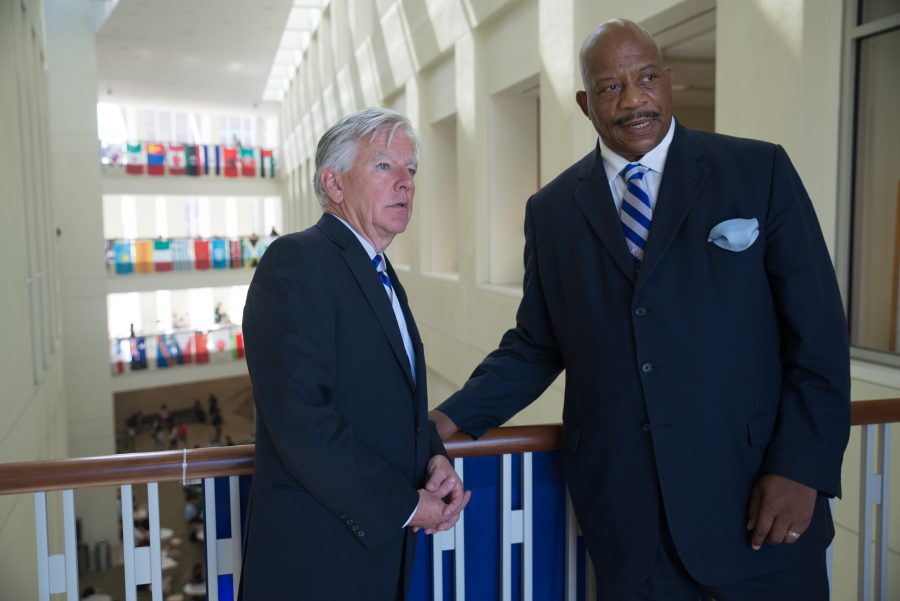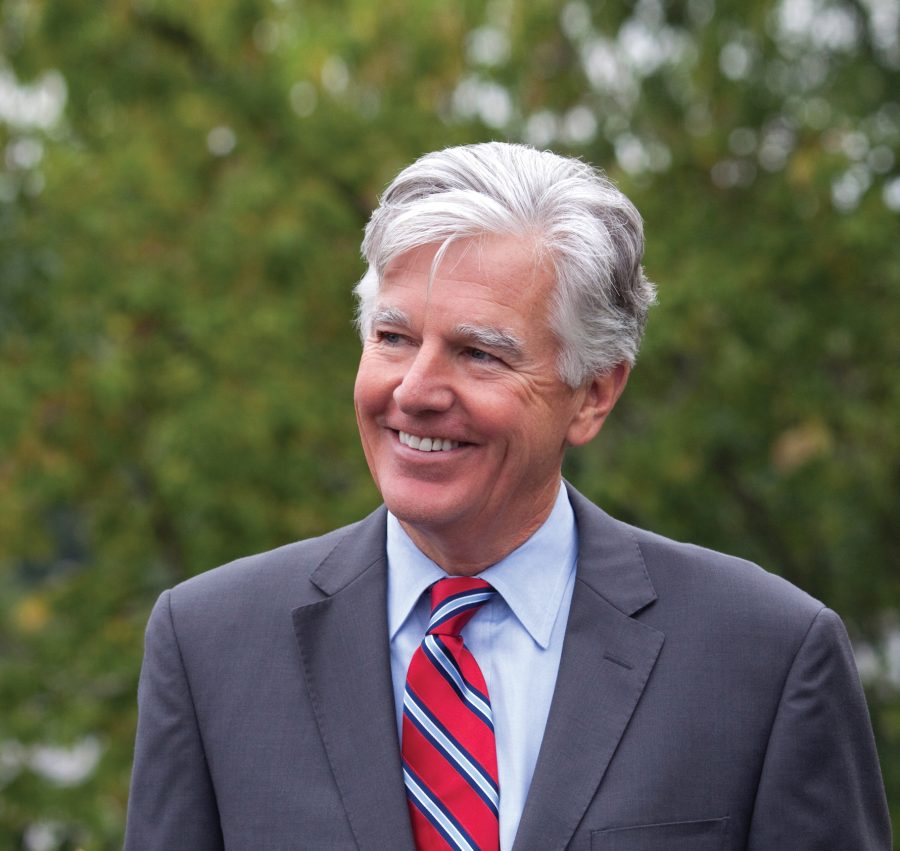Marty Meehan says he’s finally landed his dream job. He says it’s the culmination of his career. The University of Massachusetts Board of Trustees elected him the president of the five-campus UMass system last May. A former UMass Lowell chancellor and congressman, Meehan brings to the job a range of experience and a lifetime of serving the public of the Commonwealth. He is the first president to have received an undergraduate degree from a UMass school.
“Every time I see a student on one of the campuses, it reminds me where I come from.”
Meehan grew up one of seven children in a poor section of Lowell. Neither one of his parents graduated from college. He says this background gives him more passion for the mission of public higher education. As president, he oversees the five chancellors and advocates to the state legislature for funding.
“It’s unusual to have a [president] with such a diverse background as mine, and I think I bring [the different] experiences with me.”
After graduating from UMass Lowell in 1978 with a degree in education and political science, Meehan briefly taught at Lowell Regional High School. At the age of 26 he supervised a staff of over one hundred as the deputy secretary of state for securities and corporations, one of a number of executive positions in Massachusetts’ public sector he would hold over the years.
“I never would have believed when I was growing up in Lowell, that I would have an opportunity to run a district attorney’s office, to get elected to the United States Congress. I believe in the University of Massachusetts. I think it can literally change people’s lives. ”
During the 80’s Meehan earned a master’s degree in public administration from Suffolk University and a Juris Doctor from Suffolk University Law School. Between 1993 and 2007, Meehan represented the 5th district in Massachusetts as a U.S. congressman. He received national recognition for efforts to reform campaign financing, taking a critical stance against Big Tobacco, and for helping introduce legislature to repeal the “don’t ask, don’t tell” military policy.
For the past eight years Meehan has run UMass Lowell as its chancellor, a time in the school’s history noted for rapid expansion of infrastructure and increased enrollment.
“Growing enrollment is important, because of the way UMass works, for growing revenue to invest in excellence.
Meehan counts his experience at UMass Lowell as an asset, and points out how long it has been since a former chancellor was president. The last was Sherry Penney as an interim in 1993, when she simultaneously served UMass Boston as its chancellor.
Upon entering office in May, Meehan immediately faced a series of challenges. When his predecessor Robert Caret left to head public higher education in Maryland, the budget still had not been approved. Then Governor Charlie Baker vetoed 5.2 million in funding, and Meehan had to organize an override within the state legislature.
He makes a point to visit all the campuses as much as he can. On the morning of July 1 he visited UMass Boston to engage the students there in dialogue.
UMass Boston Chancellor J. Keith Motley said about Meehan, “When he sees the [students] that’s when I see him really light up. That’s why we do this, that’s what it’s about.”
When asked to describe the character of UMass Boston, and how it fits within the broader system, Meehan said, “The diversity of the student body, not only [socioeconomic] background, but the fact that you have students from 150 countries from around the world. The greatest universities are those that have the greatest diversity of thought.”
He said that UMass Boston may embody the culture of accessibility more than any other UMass campus, and cited the harbor-side location close to Boston’s origins as a defining characteristic.
“My vision for UMass Boston is the same as Chancellor Motley’s, that of a world-class public research university right in Boston, where the students who come here have top-notch residence halls and top-notch academic programming.“
Marty Meehan was elected the President of the UMass school system last May.


